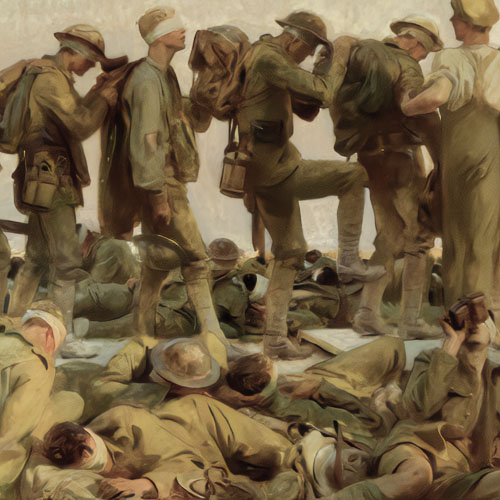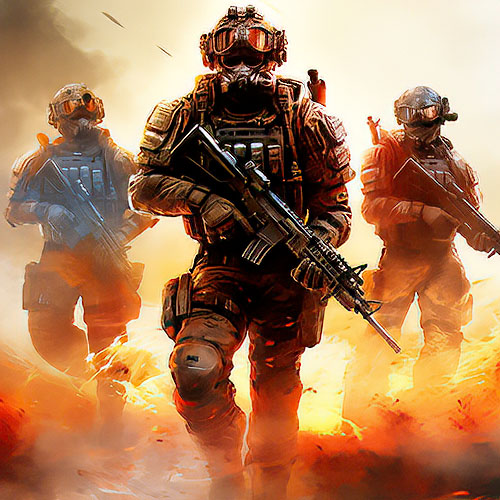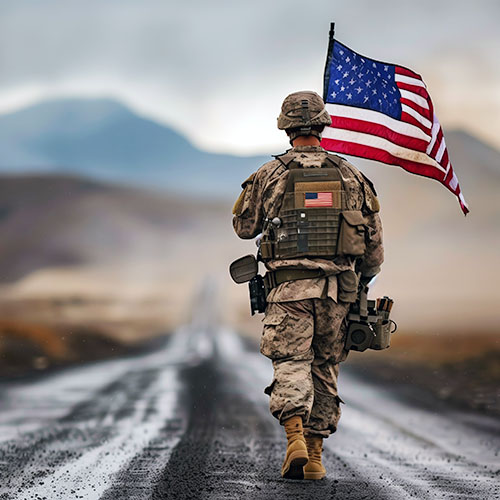What’s the role of war movies in an era of perpetual conflict?
Someone recently asked me, “Why aren’t there any good movies about today’s wars?”
Looking back on it, this question was, perhaps, posed to me at an unideal time. Three rum eggnogs in at a holiday party I hadn’t really wanted to be at in the first place, I took the question like a dog getting its tail stepped on at midnight.
“No good movies about the wars? What? Fuck that question,” I said, before deciding it was the exact right time to paraphrase Tupac. “Fuck that question as a staff, record label, and as a motherfucking crew.”
The guy who’d asked it stammered out an apology, which made me feel bad. He’d just been trying to make conversation, after all, and talking with veterans can be tricky business for civilians, so I’m told. My drunken self was contributing to that gulf. My wife’s diligent eyes across the room made it clear I was to PLAY NICE. So I did my best to assure him I’d been joking, and tossed out some film suggestions about modern war that I’d found engaging.
That there haven’t been good films about the global war on terror isn’t a rare idea. Where’s the Apocalypse Now of Iraq? Why no Platoon-like epic about Afghanistan? For Christ’s sake, is there even anything on 9/11 that comes close to touching what From Here to Eternity did for Pearl Harbor? (Pearl Harbor itself, though, sucked donkey balls. I will die on that hill. Anyhow.)
And it’s not just random dudes at holiday parties saying this. In late 2018, even Hollywood golden man Tom Hanks voiced the opinion. “I don’t know that Hollywood could create an authentic story about Iraq or Afghanistan,” he said at a Washington gala for the Elizabeth Dole Foundation. “We argue about this all the time, what’s going to be the venue for the story that needs to be told.”
Far be it for me to disagree with Captain Miller of Saving Private Ryan fame, but, well, fuck it. I am. Not only do I think the folks in Hollywoodland can make good films about modern warfare, I think it’s already been done (with room for improvement, as time goes on and, well, maybe the wars actually end?). Here’s a completely subjective list of one great and four pretty good-to-goodish works that meet the ever-vaunted Gallagher Quality Threshold.
Three Kings (1999)
Two decades old and still the GOAT of modern war flicks. What’s amazing about Three Kings is how prescient it is–it’s set during Desert Storm, but manages to foresee the dark ambiguities, sectarian violence, and ruin that awaited Babylon in coming years. There’s blood, there’s treasure, and sex between a Green Beret and an enterprising reporter looking for a tip. (Womp womp.) Throw in a killer script and some great performances by Ice Cube and Spike Jonze, and we’ve got ourselves an underrated classic of the genre.
American Sniper (2014)
I’ll admit to a real love-hate relationship with Clint Eastwood’s American Sniper. It’s a splendidly made film from an aesthetic perspective, and the end scene is damn near perfect. But beyond the shine, given the attention it received and its star-studded cast, it lingers four years later as a huge opportunity wasted to challenge people’s mindsets about the war on terror, rather than reinforcing them. Chris Kyle the man was way more interesting than Bradley Cooper’s stoic, sheepdog John Wayne impression made him out to be: Kyle was funny, tender sometimes, and sometimes a really obvious, really awful braggart and liar. Super complicated, super raw, super honest, always interesting. A man that interesting deserved a war film about him as he actually was.
Argo (2012)
Ostensibly about the 1979 U.S. hostage crisis in Tehran, Argo pulsates with contemporary foreign policy issues in a wild, rollicking story that might make you forgive Ben Affleck for his stone-voiced turn at Batman. Based on a real-life event known as “the Canadian Caper,” Argo accomplishes the rare double feat of getting viewers to root for the CIA while also providing some perspective on the “others” who label America the Great Satan. Is it a coincidence that two of the best films about the war on terror are technically set before it commenced? Reader, it is not! History needs perspective, and perspective can often serve as art’s lifeblood. Some famous dead poet said that, I think?
Sand Castle (2017)
A Netflix film, Sand Castle offers a gritty, grunt-view window on Iraq that’s common in our contemporary war literature but, curiously, hasn’t penetrated much of television or film. (Pet theory: Americans like soldiers in a vague, cipher-like way, but have a harder time reconciling those sanitized notions with the realities of angry, rough men and women looking to carry out violence for our state.) Sand Castle’s not without its faults–too much verisimilitude, not enough narrative arc, at least to these eyes–but screenwriter and U.S. Army veteran of Iraq Chris Roessner deserves a heap of credit for breaking through the civilian-military divides of twenty-first-century America and getting this thing made. Having talented, creative veterans like him operating in the arts is vital to our cultural and societal understanding of just what the hell has been going on since 9/11. Rich people reading this: Give that man some money to make his next film, this Penthouse columnist demands it to be so.
Homecoming (2018)
Yeah, yeah, this is a television series and not a film, and I’m cheating on my own list. Who cares? I wanted to write about Homecoming. It’s on Amazon Video! It stars Julia Roberts! And honest to Christ, it’s one of the more powerful and innovative works of antiwar art I’ve come across in years. Set in Florida at a private contractor’s medical facilities devoted to “curing” veterans’ post-traumatic stress, Homecoming is more thriller than drama, and benefits immensely from the tonal shifts therein. It doesn’t use combat or post-traumatic stress as much more than a backdrop, allowing the storytelling to free itself up for what’s happening here, stateside. It’s streamable in that addictive, lose-a-weekend sort of way; give it a run and let the commentary about the military-industrial complex’s exploitation of young people and their ideas of soldiering soak in after the fact.























